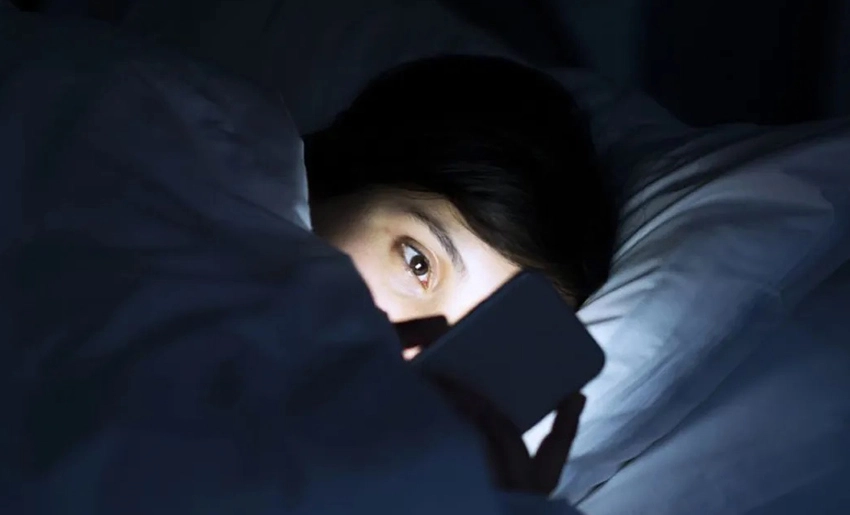In the silence of the night, when the city begins to calm down and everything seems to point to rest, many people lie awake, their eyes fixed on a screen. Minutes, sometimes hours, pass, and sleep doesn’t come.
They browse social media, respond to messages. Or watch another episode of the current series or soap opera. The clock ticks relentlessly, but the body and mind remain active, the result of delayed sleep.
This increasingly common phenomenon has been called delayed mental stimulation insomnia. It’s not simply “staying up late,” as some claim to downplay its importance. But a sleep disorder, a health problem linked to the excessive use of technological devices at night. Which affects both the quantity and quality of rest.
Our brain has a natural rhythm, its own clock called the “circadian clock,” which regulates when we should be awake and when we should go to sleep. However, this cycle is influenced by light. Especially the blue light emitted by electronic devices.
When we use cell phones, computers, or tablets until late at night, we trick our brains. We’re unwittingly telling them it’s still daytime. As a result, the production of melatonin, the hormone that helps us fall asleep, is reduced.
But it’s not just a matter of light. Cognitive stimulation also plays a role in this phenomenon: social media keeps us alert. Video games activate us emotionally, and text messages generate anticipation. All of this means that, when we try to sleep, our mind continues to work at full speed, reviewing what we’ve seen and read. Thus, the body lies in bed seemingly at rest, but the mind remains connected.
The consequences go beyond fatigue. Sustained insomnia affects memory, concentration, mood, and overall health. Poor sleep alters our emotions, weakens the immune system. Can even lead to chronic diseases if it continues over time.
Contrary to what one might think, several solutions emerge in this situation. It’s enough to build a nighttime routine that promotes sleep, prepares for it, and respects it.
One of the keys is to establish a “digital zero hour,” which some platforms, such as Instagram and Telegram, have added. A time of day, ideally an hour before bedtime, when we turn off screens and disconnect from virtual stimulation. Instead, we can incorporate habits that relax the body and mind.
Moreover it would also be worth reviewing our daytime habits. Avoiding caffeine in the afternoon, exercising during the day. And exposing ourselves to natural light helps regulate the aforementioned “internal clock.” Above all, we must understand that getting a good night’s rest is not a luxury. But a basic need, on par with eating or breathing.
In a routine that never stops and where there’s always something new to watch, read, or respond to. Setting aside time to rest has become an act of rebellion. A conscious pause, a right of our body that we must defend.
Because only when we learn to calmly close our eyes can we open the next day with true clarity. Turning off your cell phone before bed doesn’t mean disconnecting from the world. But rather reconnecting with yourself. And that, perhaps, is where true rest lies.
By: Aniel Santiesteban García
- Installation of Photovoltaic Systems in Rural Communities in Holguin - 19 de January de 2026
- 39th City Salon Opens in Holguin - 19 de January de 2026
- Habanos Festival Among Cuba’s Most Important Tourism Events - 19 de January de 2026

